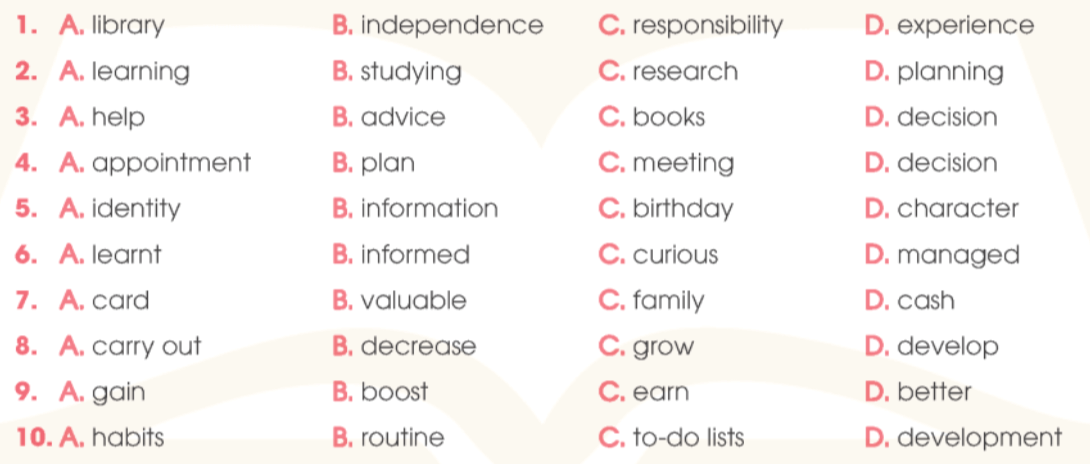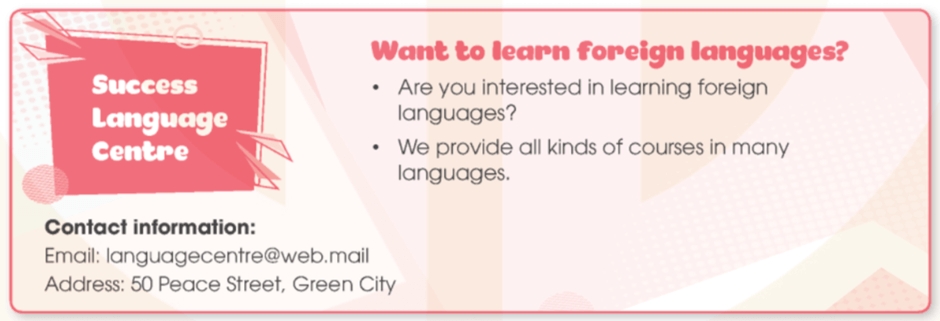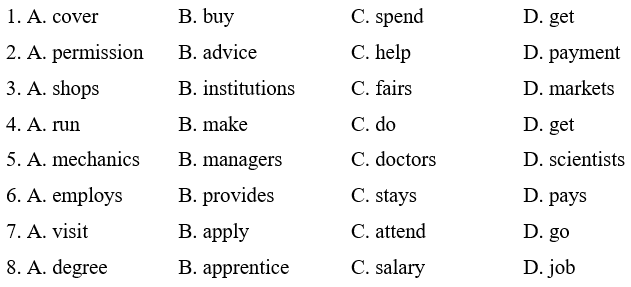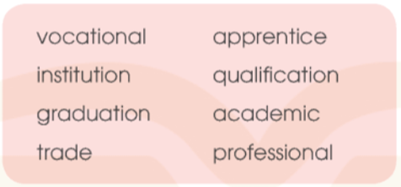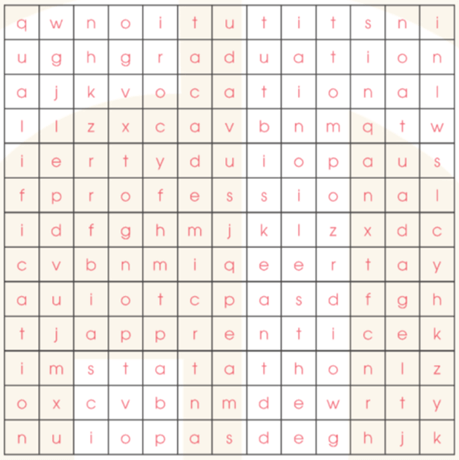Questions
Câu 517: Verified Answer
1 (trang 61-62 SBT Tiếng Anh 11 Global Success): Find the following words in the word search (Tìm các từ sau trong tìm kiếm từ)
Bài làm:
Câu 514: Verified Answer
b (trang 25 sách giáo khoa tiếng Anh lớp 10) Have you ever complained in a store or restaurant? Why? What happened? (Bạn đã từng phàn nàn trong một cửa hàng hay nhà hàng chưa? Tại sao? Chuyện gì đã xảy ra?)
Bài làm:
Câu 512: Verified Answer
b (trang 25 sách giáo khoa tiếng Anh lớp 10) Make two more conversations using the ideas on the right. (Tạo hơn hai cuộc hội thoại sử dụng ý tưởng ở bên phải.)
Bài làm:
Câu 511: Verified Answer
a (trang 25 sách giáo khoa tiếng Anh lớp 10) Practice the conversation. Swap roles and repeat. (Luyện tập đoạn hội thoại. Thay đổi vai trò và lặp lại.)
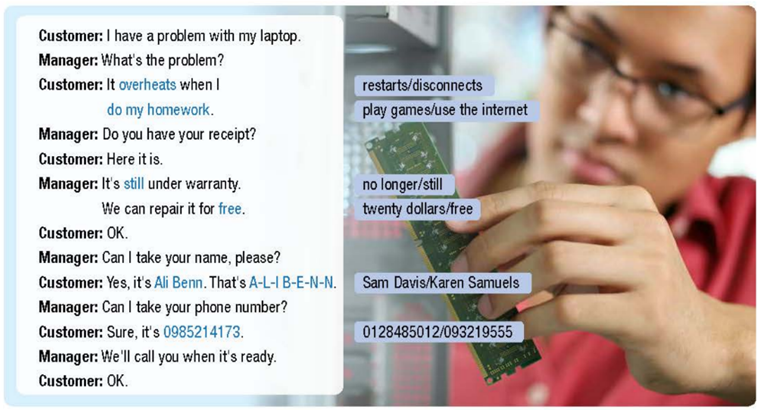
Bài làm:
Câu 510: Verified Answer
c (trang 25 sách giáo khoa tiếng Anh lớp 10) Listen and cross out the one with the wrong sound changes. (Nghe và gạch chéo từ với sự thay đổi âm sai.)

Bài làm:
Câu 509: Verified Answer
b (trang 25 sách giáo khoa tiếng Anh lớp 10) Notice the sound changes of the underlined words. (Chú ý những sự thay đổi âm của những từ được gạch chân.)

Bài làm:
Câu 508: Verified Answer
a (trang 25 sách giáo khoa tiếng Anh lớp 10) “Can I take...?” often sounds like /kǝnaɪteɪk/. (“Can I take...?” thường phát âm như /kǝnaɪteɪk/.)
Bài làm:
Câu 507: Verified Answer
d (trang 24 sách giáo khoa tiếng Anh lớp 10) In pairs: Talk about your devices using when-clauses. (Làm việc theo cặp: Nói về thiết bị của bạn sử dụng mệnh đề when.)
Bài làm:
Câu 505: Verified Answer
b (trang 24 sách giáo khoa tiếng Anh lớp 10) Unscramble the sentences. (Sắp xếp câu.)
1. photos,/overheats./it/When/l/edit => When I edit photos, it overheats.
2. when/crashes/games./I/play/lt
3. the/disconnects/when/internet./I/use/It
4. you/We/when/let/it's/will/fixed./know
5. ready./call/I'll/it's/you/when
Bài làm:
Câu 504: Verified Answer
a (trang 24 sách giáo khoa tiếng Anh lớp 10) Listen and repeat. (Nghe và nhắc lại.)

Bài làm:
Câu 503: Verified Answer
e (trang 23 sách giáo khoa tiếng Anh lớp 10) In pairs: What would you do if you bought an expensive phone or laptop and it broke the next day? How would you feel? (Làm việc theo cặp: Bạn sẽ làm gì nếu bạn mua một chiếc điện thoại hoặc máy tính xách tay đắt tiền và nó bị hỏng vào ngày hôm sau? Bạn sẽ cảm thấy thế nào?)
Bài làm:
Câu 502: Verified Answer
d (trang 23 sách giáo khoa tiếng Anh lớp 10) Listen and repeat. (Nghe và nhắc lại.)
